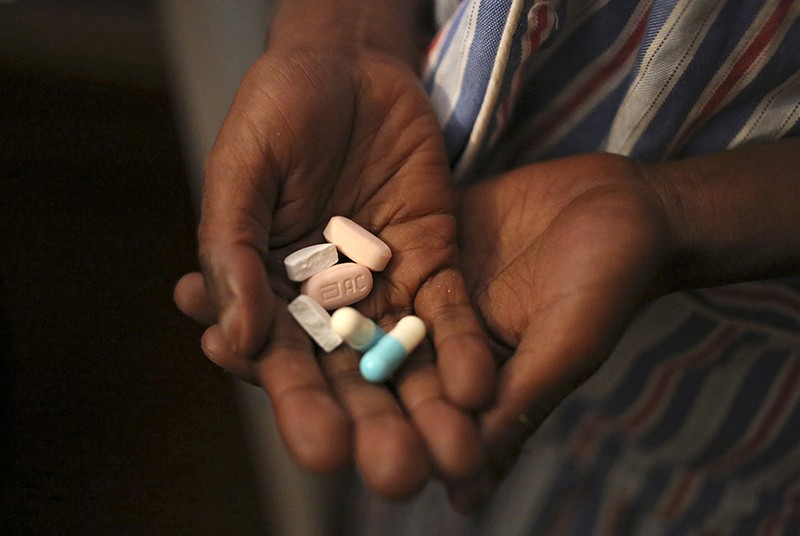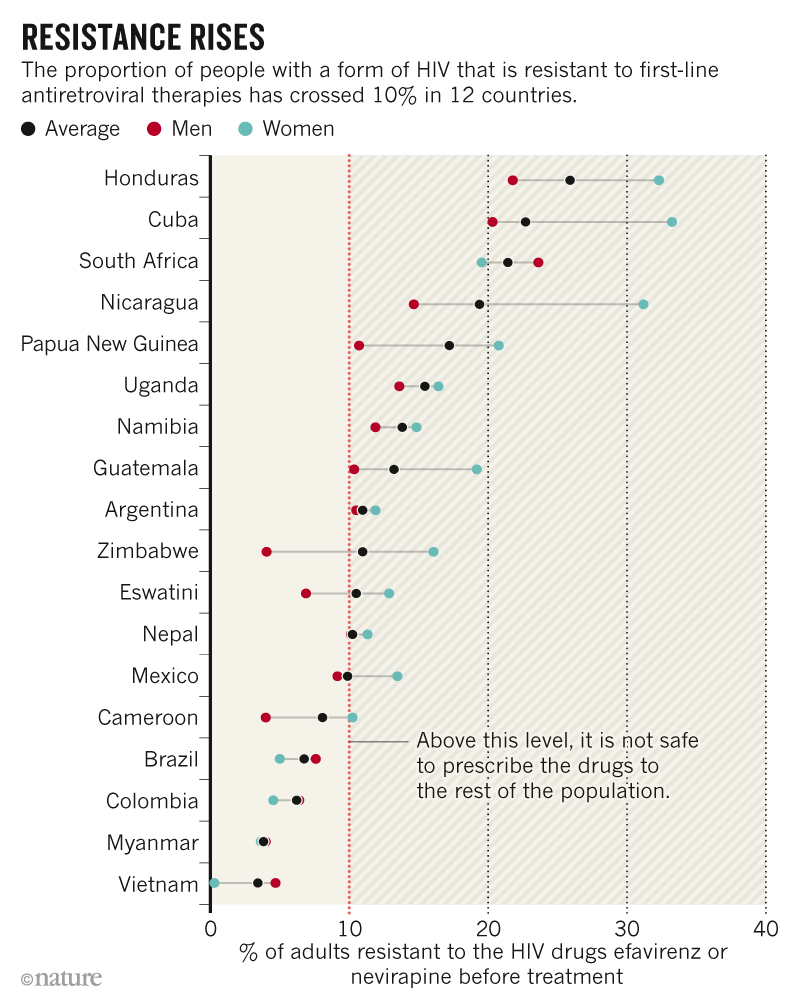source:
https://www.nature.com/articles/d41586-019-02316-xAlarming surge in drug-resistant HIV uncovered30 JULY 2019
The drug-resistant form of the virus has been detected at unacceptable levels across Africa, Asia and the Americas. Antiretroviral drugs stop HIV from replicating in the body.
Antiretroviral drugs stop HIV from replicating in the body.Health authorities have uncovered an alarming surge in resistance to crucial HIV drugs.
Surveys by the World Health Organization (WHO) reveal that, in the past 4 years, 12 countries in Africa, Asia and the Americas have surpassed acceptable levels of drug resistance against two drugs that constitute the backbone of HIV treatment: efavirenz and nevirapine.
People living with HIV are routinely treated with a cocktail of drugs, known as antiretroviral therapy, but the virus can mutate into a resistant form.
The WHO conducted surveys from 2014 to 2018 in randomly selected clinics in 18 countries, and examined the levels of resistance in people who had started HIV treatment during that period.
More than 10% of adults with the virus have developed resistance to these drugs in 12 nations (see ‘Resistance rises’). Above this threshold, it’s not considered safe to prescribe the same HIV medicines to the rest of the population, because resistance could increase. Researchers published the findings this month in WHO report.
“I think we have kind of crossed the line,” says Massimo Ghidinelli, an infectious-disease specialist at the Pan American Health Organization in Washington DC.
Overall, 12% of women surveyed had a drug-resistant form of HIV, compared with 8% of men.
Particularly concerning, says the report, is the high level of resistance in infants with HIV in sub-Saharan Africa. Between 2012 and 2018, about one-half of newly diagnosed infants in nine of the countries in this region had a form of HIV that was resistant to efavirenz, nevirapine or both.

The causes of drug resistance remain elusive, says Silvia Bertagnolio, an infectious-disease physician at the WHO in Geneva, Switzerland, and co-author of the report. But drug-resistant HIV might develop when people interrupt treatment, she suggests.
For example, many women living with the virus might have taken antiretrovirals during pregnancy to prevent their babies from becoming infected, but stopped after delivery. The WHO recommended this practice until 2015, when it suggested that pregnant and breastfeeding women use the drugs for life.
The prevalence of resistance in people who restarted efavirenz and nevirapine after interrupting treatment was much higher (21%) than in first-time users (8%).
People living with HIV might go on and off the drugs for several reasons. Stigma plays a huge part, says Bertagnolio; they might not want to be seen picking up their medicines. Drug shortages at clinics could also contribute, the report noted.
In response to the evidence, the WHO has recommended that countries use dolutegravir, which is more effective and tolerable than other therapies, as the go-to HIV drug. The likelihood that the virus will develop mutations and, eventually, resistance is lower with dolutegravir than with other antiretrovirals, says Roger Paredes, an infectious-disease physician at the Germans Trias i Pujol University Hospital in Barcelona, Spain. “We have to encourage a worldwide transition to dolutegravir,” he adds.
Bertagnolio agrees, but calls for caution. If treatment delivery is poor or patchy, resistance could emerge. “We don’t want to find ourselves in the same situation we’re in.”








